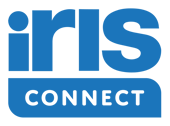Moving the focus away from ICT, Computing was added to the National Curriculum way back in September 2014. The change was welcomed by many and even referred to as ‘a revolution’.
But, talking to colleagues and friends from the Computing education community, there seems to be an increasing gap between the schools who are effectively managing the shift from ICT to Computing and those who are yet to begin the transition.
The growing gulf
Schools who have already shifted the focus seem to be enjoying the change and embracing Computing.
There have also been a variety of guidance documents, national initiatives and resources provided to help schools, and what’s more, the Computing education community have done some wonderful work to try and demystify the shift and support teachers.
Many teachers, universities and commercial training providers are undertaking voluntary and paid-for work to offer extensive certification, publications and training to help teachers.
Yet, they’ve found it a struggle to fill places. So, why are some schools still left behind?
What’s the problem with Computing?
Some school leaders suggest that, despite all the efforts of others, Computing remains a low priority in their school development plans.
Reasons for this include a consistently heavy focus on Maths and Literacy, as well as recent significant changes to assessments and the Ofsted Inspection Handbook. Another issue is the impact of changes to school funding formulae’s affecting budgets on CPD and lesson cover. It’s also been suggested that school leaders perhaps have not grasped just how much the curriculum has changed with this subject shift.
What can be done?
Leaders have suggested that highlighting the government guidance and contextualising it for Computing could be a great help. Equally, pointing out the document, pages and specific paragraphs that can be used to find the answers to specific questions would be incredibly beneficial and also save time.
Teachers have indicated that they could do with support in contextualising official Ofsted and Department for Education publications with regards to Computing, combined with practical and achievable examples they could try in their classrooms.
School leaders and teachers, at all stages in their careers and across every educational setting, have suggested that what they need is a set of simple and clear Frequently Asked Questions (FAQs).
These FAQs could be dipped in and out of and referred back to whenever required. To give schools the confidence to develop their own solutions, it would be even more beneficial if the FAQs contained examples of how other schools answer a question or solve a problem, with reference to the official guidance (by topic, page and paragraph numbers) from Ofsted, Department for Education and Computing educational community.
 The solution
The solution
Progression Pathways has listened to what teachers want and worked with partner schools and organisations to collate an impartial and marketing free set of FAQs.
The aim of the FAQs is to support school leaders and provide a starting point from which to identify parts of the school’s Computing provision to focus on first.
Progression Pathways are also sharing their expertise through guest lectures and workshops for a number of Initial Teacher Training providers, Local Education Authorities and their local partner schools.
Do you have any experience with the curriculum shift from ICT to Computing? How are you finding it?



Leave a comment:
Get blog notifications
Keep up to date with our latest professional learning blogs.